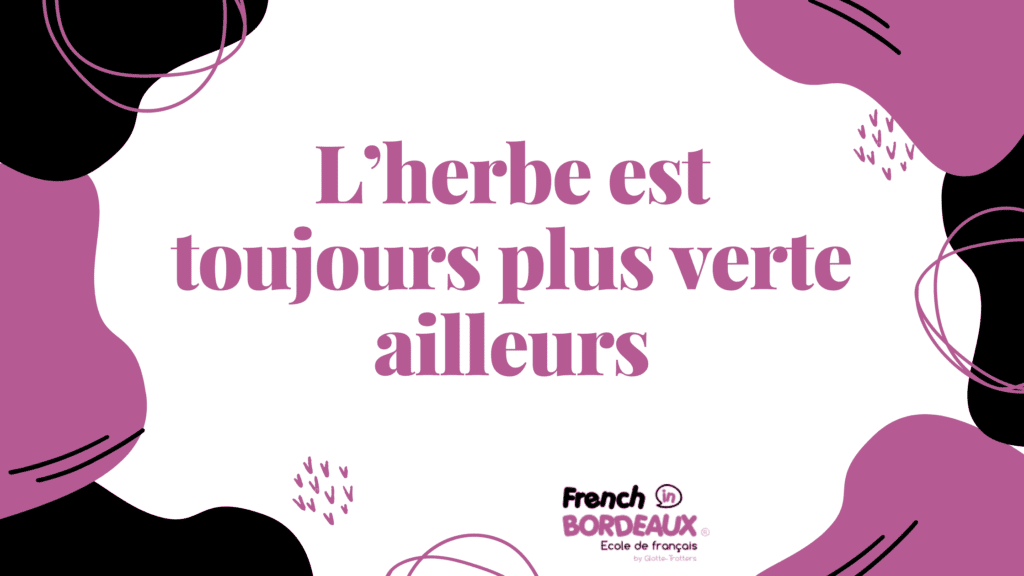
When you read this phrase, what does it evoque in you? Are you now thinking of a park and green grass? Well, it might be the first image that crosses your mind and we don’t blame you. This is what “expressions imagées” tend to do to our heads. But let’s see what this is about.
The origins of this expression
We don’t really know when this expression started being used, its origins are still very vague. What we know is that it comes from an optical effect that gives grass great brilliance when looked at from a distance, only to find out that it is rather colorless.
Its meaning
When we say “l’herbe est toujours plus verte ailleurs”, it is a figure of speech that means we always have the impression that people have it better than us. Le mot “toujours” (always) is used in this phrase in an ironic way to highlight the fact that things never turn out to be what we imagined.
Why do we think the grass is greener on the other side of the fence?
We tend to be very negative when judging our situation and, on the contrary, very positive when it comes to other people’s lives. The grass in this phrase represents the life of the people who surround us and we think it is in reality as shiny as it looks. But why do we compare to others? Is it a human thing to do so that we can measure our success?
L’herbe est-elle toujours plus verte ailleurs?
The short story Lettres de Mon Moulin by Alphonse Daudet (1887) illustrates perfectly the meaning of this saying. It tells the story of a goat that gets bored in its run because the grass was insipid, so it asked its owner to let it go run in the heath of the mountain. It found a marvelous grass that went up to its horns. It was delicious, savory, and full of plants. But one night, the goat was eaten by a beast. Amazed by the appearance of the grass, the goat forgot about what is essential, being protected by his master.
It seems that nowadays we don’t tend to envy the grass of our neighbor for growing our plants. It is rather their lives portrayed with or without filters in the social media that we envy. But we have to be careful not to fall into the trap! Attention, ne sois pas à côté de tes pompes!
French expression
French expression
We have set up some quizzes so that you can better understand this expression. Just click below to access these quizzes.